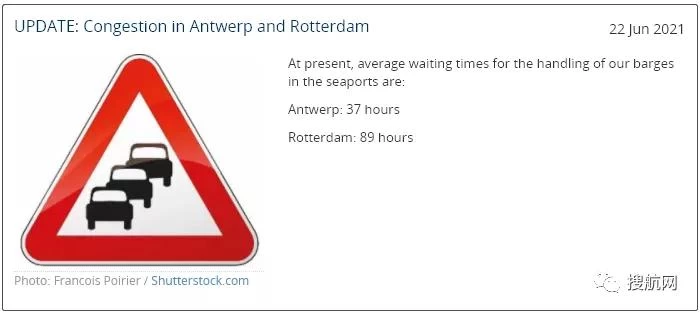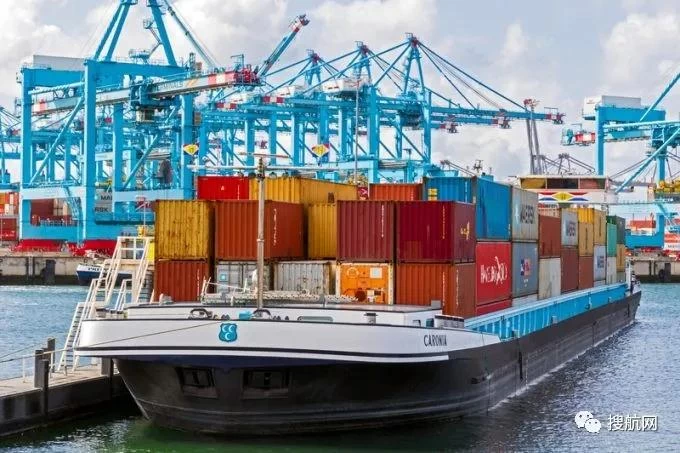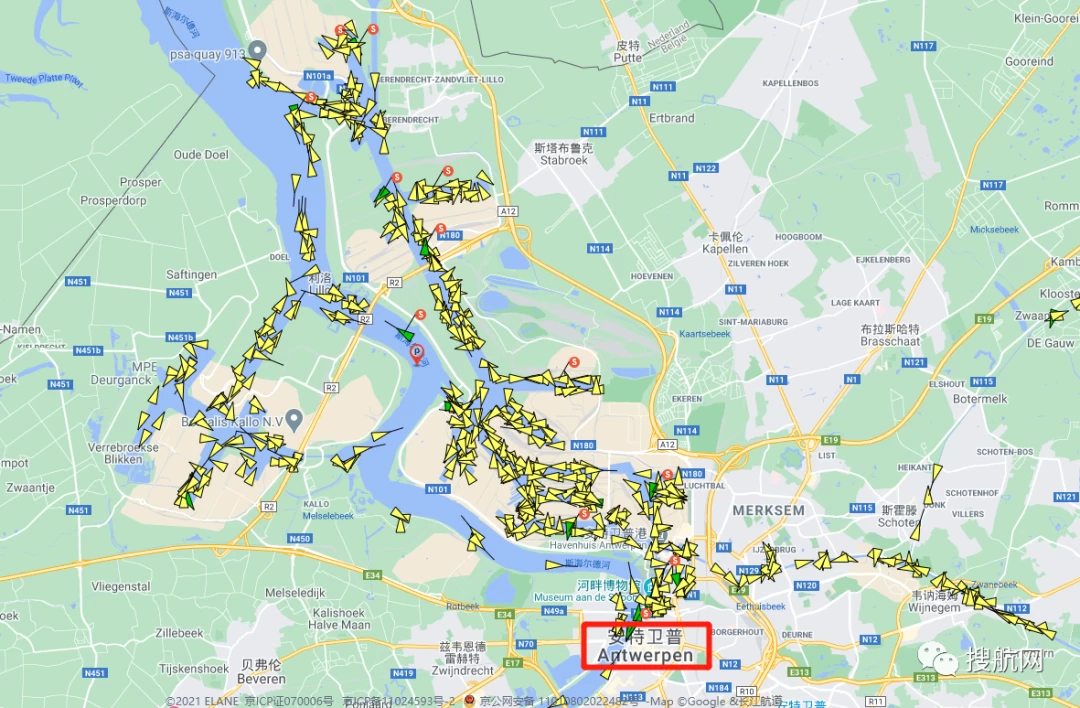Congestion in major European ports spread to inland waterways, and barges were delayed and empty shifts
Jim
Sunny Worldwide Logistics
2021-06-25 18:28:20
Recently, many major European ports of Rotterdam, Hamburg, Antwerp, Liverpool, etc. have experienced serious congestion, which caused shipping companies to arrange port jumps or change part of their voyages. It is reported that congestion in major ports has spread to inland waterways, and cargo owners are scrambling to retrieve containers. Barge operator Contargo said this week that congestion time has surged, and the delay time of Rotterdam services reached a high of 89 hours, which is an increase of more than one day from last week, breaking the slow but gradually easing delays in the past month.

Rotterdam is not the only port that is heavily congested with barge transportation. According to a Contargo report, Antwerp has a delay of 37 hours. However, after reaching a peak of 54 hours in mid-May, Belgian ports have managed to reduce it to around 35 hours.

SeasC4U maritime consultant Gunther Ginckels said that barge operators (rather than shipowners) refuse to cooperate in optimizing capacity, and predict the wider problems that flow imbalances are increasing. He said that in Antwerp and Rotterdam, an average of 3,000 to 5,000 TEUs of ultra-large container ships (ULCV) must be unloaded every time they stop for inland navigation. The refusal of the barge operator to cooperate resulted in an empty shift of 50% of the barges between the Antwerp- or Rotterdam-Rhine-Ruhr route. Contargo, the barge operator, transports about 50,000 containers on about 40 barges a month, and notified customers of the delay on Tuesday.

It is believed that the recent delays stemmed from the “complete flooding” of the port of Rotterdam by the ultra-large container ships unloaded at its terminal. A source said: "The terminal is completely overwhelmed. Barge operators are competing with the time constraints on the terminal and the lack of timely sorting of the boxes unloaded from these large ships. The source of these delays is that all super large ships are It went beyond the planned operation, and then unloaded a large number of boxes."

Leon Willems, spokesperson for the Port of Rotterdam, said that the problems faced by the Dutch waterways reflect the problems faced by global ports. "We have been saying that after dealing with the last delayed ship, the consequences of the blockage of the Suez Canal will not end, and the problems caused by the recent Shenzhen new crown pneumonia epidemic are even worse." "Having said that, the obvious fact is that the volume of containers in Rotterdam is still rising, and we expect the disruption of the global supply chain to continue for several months as the peak season is approaching." A branch line supervisor in Northern Europe told the media that about 25% of the company's capacity needs to wait for berths at the port, and the situation in Rotterdam is particularly disturbing. The executive added: "This makes running any type of feeder service in this port an impossible task."




















